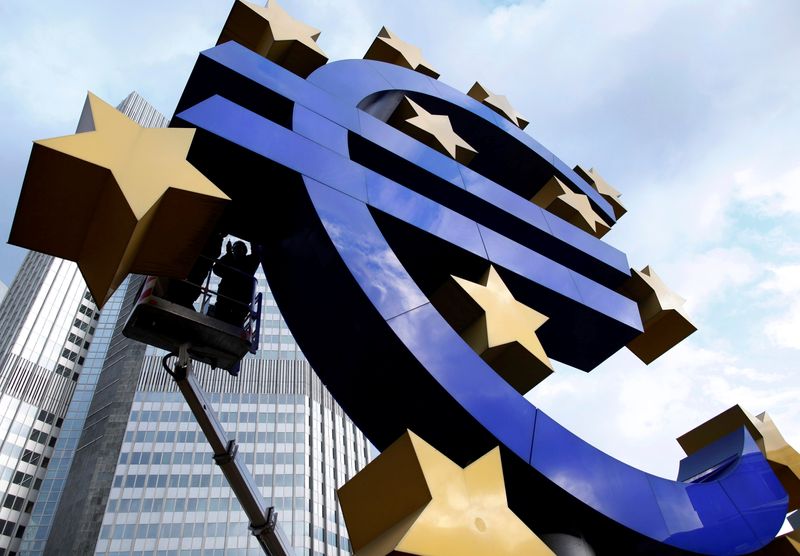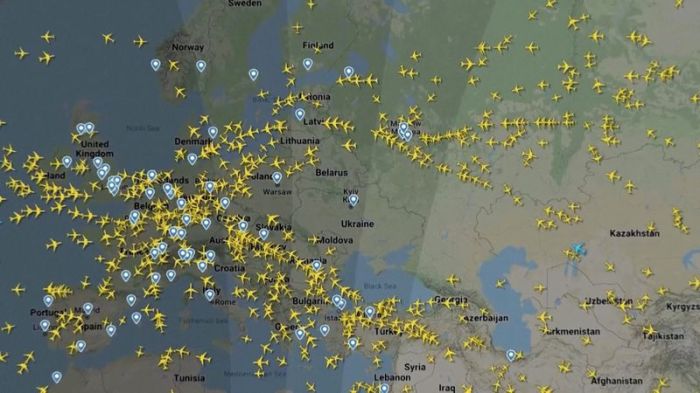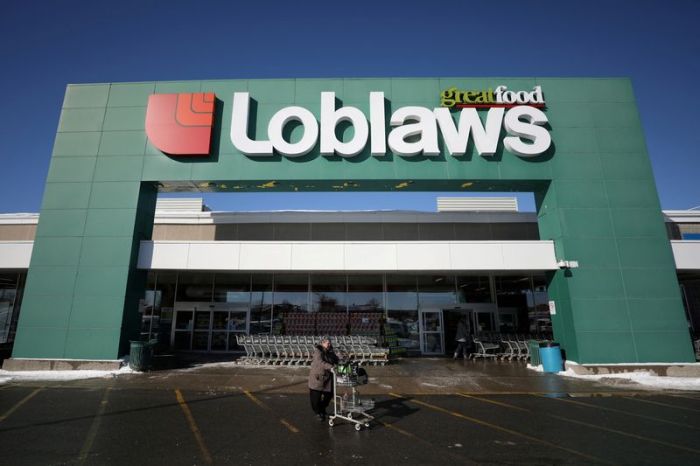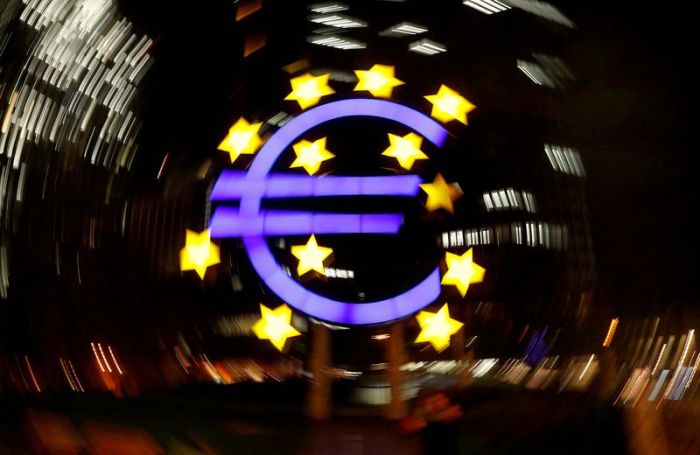FRANKFURT (Reuters) -European Central Bank policymakers are gathering on Thursday for what may have become a crisis meeting as Russia’s invasion of Ukraine threatens to derail economic growth in the euro zone and complicate the ECB’s path out of negative interest rates.
The ECB’s “informal get-together” was aimed at preparing a decision on March 10 on the likely end of the ECB’s bond-buying stimulus programme, paving the way for the first rate hike in more than a decade to tackle surprisingly high inflation.
But Russia’s invasion of Ukraine overnight has changed the picture by raising the prospect of higher energy costs, financial turmoil and lower trade for the euro zone, which relies on Russian gas for 40% of its needs.
“In my view it is going to have a short-term inflationary effect – that is prices will increase due to higher energy costs,” ECB policymaker Yannis Stournaras told Reuters.
“But in the medium to long term I think that the consequences will be deflationary through adverse trade effects and of course through the rise in energy prices,” the Greek central banker added.
Stournaras, among the ‘doves’ of the ECB’s Governing Council who favour an easier monetary policy stance, added the central bank should continue buying bonds at least until the end of the year to cushion the impact of conflict in Ukraine.
Even his Austrian peer Robert Holzmann, seen as a ‘hawk’, said events in Ukraine may delay the ECB’s exit from stimulus measures, Bloomberg reported later.
Isabel Schnabel, an ECB board member who is also seen as a hawk, said the “shock of war” had clouded the outlook for the economy just as inflation was taking hold in the euro zone and allowing the ECB to withdraw its stimulus measures.
LIKELY TO SLOW DOWN
European Union leaders will impose new sanctions on Russia, freezing its assets, halting its banks’ access to European financial markets and targeting “Kremlin interests” over its invasion of Ukraine, senior officials said on Thursday.
The exact economic fallout was hard to quantify before the full extent of the conflict and the ensuing economic sanctions were known, potentially including the financial isolation of Russia through its exclusion from the SWIFT payment system.
But analysts concurred that the ECB was now likely to slow down the withdrawal of its support measures.
“It will make the ECB more cautious and may delay the decision on tapering bond purchases,” said Frederik Ducrozet, a strategist at Pictet.
Daiwa Capital Markets’ head of research Chris Scicluna said the crisis would “slow the pace of (ECB policy) normalisation”.
ING economist Carsten Brzeski said the ECB may refrain from giving an end date to its Asset Purchase Programme on March 10.
NEW AGENDA
Thursday’s meeting started with a lunch and is scheduled to end at around 10 p.m. (2100 GMT), before a gathering of European Union finance ministers the following day.
The ECB had not shared a meeting agenda with policymakers but they had been expected to discuss the economic outlook, their next policy moves as well as some operational matters.
Instead, the Ukraine crisis would likely dominate the discussion.
“This is now something completely different,” ING’s Carsten Brzeski. “It takes away the pressure for the ECB to rush into action.”
An ECB spokesperson said a “comprehensive assessment” of the economic outlook would be carried out at the March 10 meeting.
With euro zone banks flush with cash and only marginally exposed to Ukraine, the ECB was not expected to have to step in to support the financial sector despite heavy falls on the stock market on Thursday.
Euro zone banks can tap the central bank for unlimited liquidity against collateral under a facility created during the last financial crisis.
But euro zone lenders may still be in for a rough ride if the Ukraine conflict hits economic activity in the euro zone.
“Direct exposures are limited but second round effects could be material,” Marco Troiano, a managing director at Scope Ratings, said. “For example, the increase in energy prices can have knock on effects on growth in Western Europe and on banks’ operating conditions.”
The ECB’s top bank supervisor said earlier this month an exclusion of Russia from SWIFT would be “most impactful” https://www.bankingsupervision.europa.eu/press/speeches/date/2022/html/ssm.sp220210~b95041902b.en.html on euro zone banks and urged banks to prepare, including for the risk of cyber attacks associated with the geopolitical situation.
Cutting Russia off from SWIFT is unlikely to happen at this stage, senior officials said.
(Additional reporting by Dhara Ranasinghe in London and Jan Strupczewski in BrusselsEditing by Gareth Jones, Tomasz Janowski, Elaine Hardcastle)
























